I hate wasting food, I’ve grown enough of it to understand the work that went into everything I put on the table. I’ve raised birds for meat and eggs, grown veggies from seed and spent hours canning food for a later day. Bottom line, I worked too damn hard for that food to tolerate any kitchen waste!
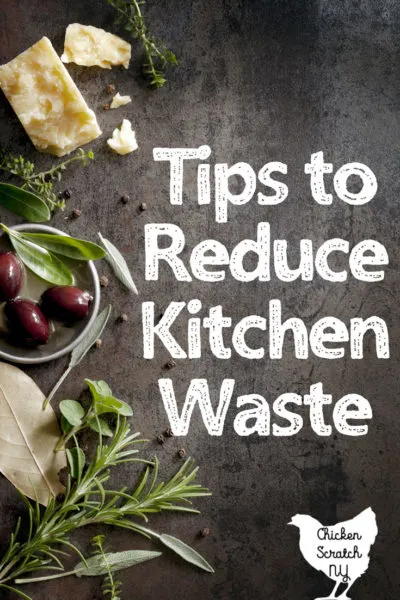
Over the years I’ve developed a few habits to reduce kitchen waste and I thought I’d share them with you today.
Obviously everything won’t apply to everyone. I recognize that I live a somewhat unconventional life haha. For example, I don’t measure anything unless I absolutely have to (like I’m writing a recipe to share with you or I’m being threatened by a bear) and my super power is the ability to eat the same meal 4 nights in a row.
But I do have some good tips so grab some coffee and take some notes or PIN this post for later so you don’t forget anything.
Keep an Inventory
Most kitchen waste problems can be solved by only buying what you need. I am terrible at remembering what I have in my pantry. That’s why I have 14 cans of fire roasted tomatoes from Aldi’s.
I tend to make the same things over and over so buy the same things. That works great until I switch things up and still buy the regular groceries that I don’t need…
Those fire roasted tomatoes make a fantastic Instant Pot Chicken Dinner by the way 😉
A great way to keep track of what you have is with a written inventory. Another option is to take pictures with your phone. That way you always know what you have, of course, that takes a little organization so you can actually see what you have in the pictures…
I don’t meal plan so dinner is usually whatever I need to cook that night before it goes bad.
I am a terrible grocery shopper. I’m shocked I haven’t been stopped on suspicion of shoplifting, I just wander around throwing things in my cart at random.
Most of my groceries come from Aldi’s but I also hit Chanatry’s, the Amish Market and Price Chopper. Keeping track of what I have is more helpful than keeping track of what I need.
The Freezer is your Friend
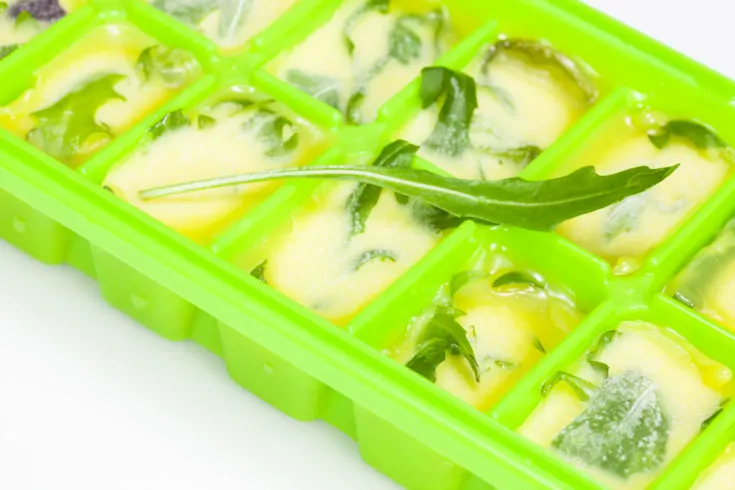
Buying in bulk is a great way to save money. But you almost always end up with a little extra, and I hate throwing away any food.
I keep a small silicone cube mold on hand for freezing up my extra bits. It’s great for fresh herbs, tomato paste and citrus juice.
If you have left over fresh herbs, maybe some dill after making Caramelized Onion Dip, chop them up, put them in the tray and cover with olive oil. Put the tray in the freezer, when they’re solid (the oil will turn opaque) pop them out and store in a freezer bag or jar.
I love doing this with garlic scapes. I used to plant 100+ bulbs of garlic a year, that means 100+ garlic scapes all at once.
Every year I’d toss the left overs in the food processor with some oilive oil and freeze in cubes. Whenever I’m making some soup or a meal that needs a little garlic punch I toss in a cube.
If you’ve been cooking for more than 5 hours you’ve probably noticed recipes love to call for a tablespoon of tomato paste. Tomato paste doesn’t come in tablespoon sized cans!
Scrape the left overs into a silicone tray and you’re good. I have a set of mini spatulas that I love and use daily. They get the last bit out of every jar and can.
Make Stock
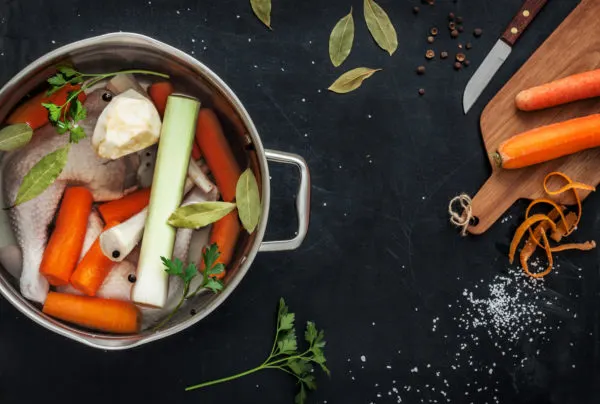
Keep a few large freezer bags or containers accessible in the freezer. Add chicken bones to one, vegetable scraps to another. If you make lots of seafood keep another bag on hand for those scraps.
Whenever you have enough dump the contents into a stock pot and cover with water. Bring to a simmer and skim off the gross stuff that floats to the top.
Simmer for 3-4 hours, add more water if the level gets too low. Strain out the vegetables and meat. Return to the pot and cook down for a stronger flavor.
Danielle from The Rustic Elk has a great tutorial on making and canning bone broth. And if you have the option, 100% add the chicken feet! Chicken feet make the best stock in the world.
Get some Chickens
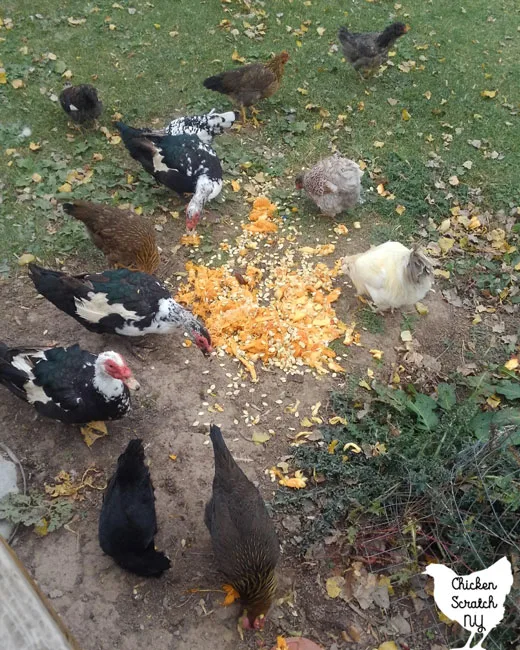
This is part joke, part truth. My chickens are great at cleaning out the pantry for me. I buy a lot of my baking and grains/nuts/dried fruits from a local Mennonite market.
Everything is repackaged bulk food in plastic bags. After a while some stuff gets buggy. All of that goes to the chickens.
They also get the fruit and veggies that are starting to go bad.
I used to have a compost pile but it was infiltrated by fluffy butts. Once the garden is completely fenced in I’ll put in a new compost pile. Until then the chickens get it taken care of.
There are a few foods chickens shouldn’t have. Don’t give them: avocado pits, chocolate, green potatoes, alcohol, salty or sugary foods.
I always see citrus on the list but in my experience the chickens just ignore it. When they would wreck my compost they’d just fling the orange peels.
Check out my Recipe Page for more fun in the kitchen or start with some of my favorite meals:


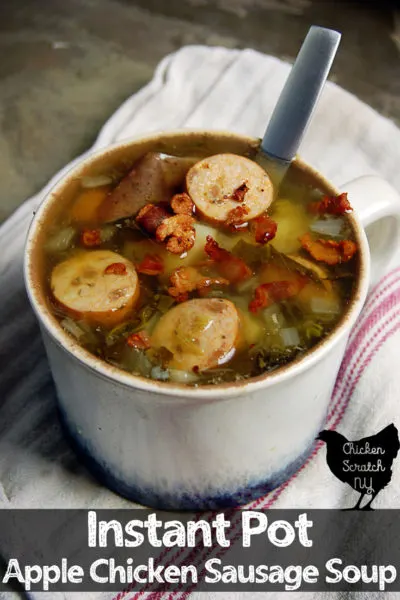
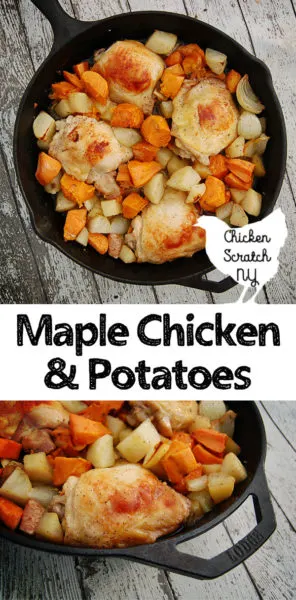
Felicia
Monday 30th of April 2018
I can definitely use these! It's clean up time too!
Tara
Sunday 29th of April 2018
Great tips! I need to follow some of these, because I always end up wasting food and I do not like it. Thank you.
Mohan
Sunday 29th of April 2018
Great practical tips! Thanks for sharing!
Paula
Saturday 28th of April 2018
I am terrible at most things kitchen-related and definitely guilty of wasting...Thx for the helpful ideas of how to reduce waste..I will apply at least a few!
Smitha
Saturday 28th of April 2018
Taking pictures idea is really cool. I always fail with the lists, I think this will work. Thanks.